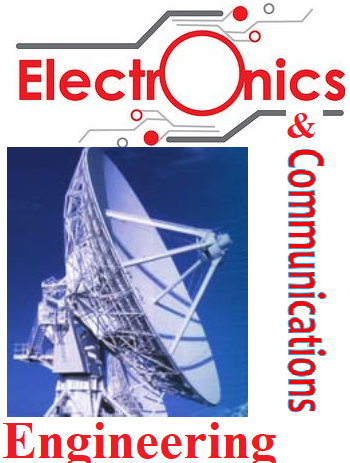sd
Courses tagged with "sd"

This module is designed to enable students to cope up with new advances in research in Communication. It includes a review of Communications available today and advances in Communications research.
- Teacher: Nourhan Ahmed Yehia Saad Mahmoud Hassan
- Teacher: Ahmed Fawzy Daw / Dr
- Teacher: Diaa Hafez
- Teacher: Ahmed Hatem
- Teacher: Ahmed I. Ahmed
- Teacher: Dr.Samer Ibrahim Mohamed
- Teacher: Ahmed M. D. E. Hassanein
- Teacher: Maysa Mahmoud Fathy Omar
- Teacher: Shaymaa Mohamed Tayser El-Sayed
- Teacher: Dr.Nabila Nowaira
- Teacher: Farah Raad Kareem
- Teacher: Prof.Dr.Hafez Radi
- Teacher: Shahenaz Shokry
- Teacher: Prof.Nahed Sobhi abd elnour
- Teacher: Mona afifi

This course is designed to provide students with an in depth coverage of the Design of
VLSI digital circuits; FPGA hardware structure, process simulation using CAD tools,
and languages for VLSI synthesis.
- Teacher: Fady Erian Estafanous
- Teacher: Diaa Hafez
- Teacher: Nayera Hassan Ali Ibrahim
- Teacher: Ahmed Hatem
- Teacher: Ahmed M. D. E. Hassanein
- Teacher: Maysa Mahmoud Fathy Omar
- Teacher: Abdelrahman Mohamed Ali Hassan El-Akhdar
- Teacher: Bassam Mohamed Elmakhzangy
- Teacher: Dr.Hazem Mohamed Fawzy Zakaria Eissa
- Teacher: Hatem Mohamed Mohamed Zakaria Radwan
- Teacher: Shahenda Mohamed Shokry
- Teacher: Hussien Mostafa Said El-Kholy
- Teacher: Nesma Nour
- Teacher: Dr.Nabila Nowaira
- Teacher: Farah Raad Kareem
- Teacher: Prof.Dr.Hafez Radi
- Teacher: Shahenaz Shokry
- Teacher: Prof.Nahed Sobhi abd elnour
- Teacher: Nourhane Tarek Ibrahim Hassan
- Teacher: Nada Yasser Ahmed Salama
- Teacher: Dr.Noha Younes
- Teacher: Mona afifi

This module focuses on the Fourier analysis of signals, analysis of the continuous wave (CW) modulation techniques (AM, DSB-SC, QAM, SSB, VSB, FM and PM) and their applications, mathematical description and spectral analysis of AM, FM and PM signals.
- Teacher: Ahmed Abdelrashied
- Teacher: Mohamed Gamal Shafeek
- Teacher: Diaa Hafez
- Teacher: Ahmed Hatem
- Teacher: Fawzy Ibrahim Abd Elghany
- Teacher: Ahmed M. D. E. Hassanein
- Teacher: Maysa Mahmoud Fathy Omar
- Teacher: Hatem Mohamed Mohamed Zakaria Radwan
- Teacher: Dr.Nabila Nowaira
- Teacher: Farah Raad Kareem
- Teacher: Prof.Dr.Hafez Radi
- Teacher: Prof.Nahed Sobhi abd elnour
- Teacher: Mona afifi

- Teacher: Mohamed Gamal Shafeek
- Teacher: Diaa Hafez
- Teacher: Ahmed Hatem
- Teacher: Fawzy Ibrahim Abd Elghany
- Teacher: Ahmed M. D. E. Hassanein
- Teacher: Maysa Mahmoud Fathy Omar
- Teacher: Hatem Mohamed Mohamed Zakaria Radwan
- Teacher: Dr.Nabila Nowaira
- Teacher: Farah Raad Kareem
- Teacher: Prof.Dr.Hafez Radi
- Teacher: Prof.Nahed Sobhi abd elnour
- Teacher: Mona afifi
- Teacher: Ehsan Abd El Moniem Zaki
- Teacher: Maha Abd Elhakeem Hassan
- Teacher: Yasmine Ahmed Sweed
- Teacher: Hebat Allah Adel Shaaban Hassan
- Teacher: Yasmeen Fahd Mohamed
- Teacher: Omnya Ibrahim Muhammad Saad
- Teacher: Dr.Nagla Ibrahim Saleh al-Hadidy
- Teacher: Nourhan Khaled Ahemd
- Teacher: Dr.Kholoud Mansour Khalifa
- Teacher: Dr.Ghada Mohamad Al-Akhdar
- Teacher: Dr.Soha Raafat
- Teacher: Amani Wageh Abd Al-Halim
- Teacher: Hala Yousry Darwish
This unit aims to enhance the students’ knowledge and skills needed to conduct a research paper of substantial depth and length under the supervision of a faculty member, whether it is theoretical based on literature review and analysis, or empirical based on econometric, statistical or mathematical analysis.
Topics selected by students for their graduation projects are closely linked to sustainable development goals, especially SDG8 related to decent work and economic growth, as they create models where they try to determine the main catalysts for growth in certain countries or regions. Students also choose topics related to reducing poverty (SDG1) or inequality (SDG10), quality education (SDG4) gender equality (SDG5) and many other SDGs.- Teacher: Dr.Doaa Abdou
- Teacher: Nadine Amr Mohamed Abdelmoneim Hosny
- Teacher: Dr. Heba Ezz Helmy
- Teacher: Maha Ismail Mahfouz Ismail
- Teacher: Salma Kamal Zanaty Mahran
- Teacher: Nadeen Sherif Mamdouh Eladawy

This module is the second part of two twin modules focusing on the history and development of economic thought. The aim of this module is to explain and evaluate the evolution of economic thought starting from the end of the first part module namely the emergence of Marxist thought till the contemporary developments in macroeconomics and microeconomics.
Although
historical, this module contributes in the theoretical economic
underpinning of the 2030
Agenda and the role of classical and neoclassical economic theory in
this context. Most economic theories – as the 2030 Agenda – are related
to
every aspect of sustainability especially those linked to decent work
and economic growth (SDG 8), reduced inequality (SDG 10) and peace,
justice and strong institutions (SDG 16).
- Teacher: Dr.Doaa Abdou
- Teacher: Menna Ahmed Elsayed Salem
- Teacher: Nada Fouad Kassem Elsahaar
- Teacher: Dr. Heba Ezz Helmy
- Teacher: Dr.Rehab mohammed mahmoud el bordiny